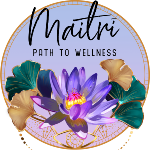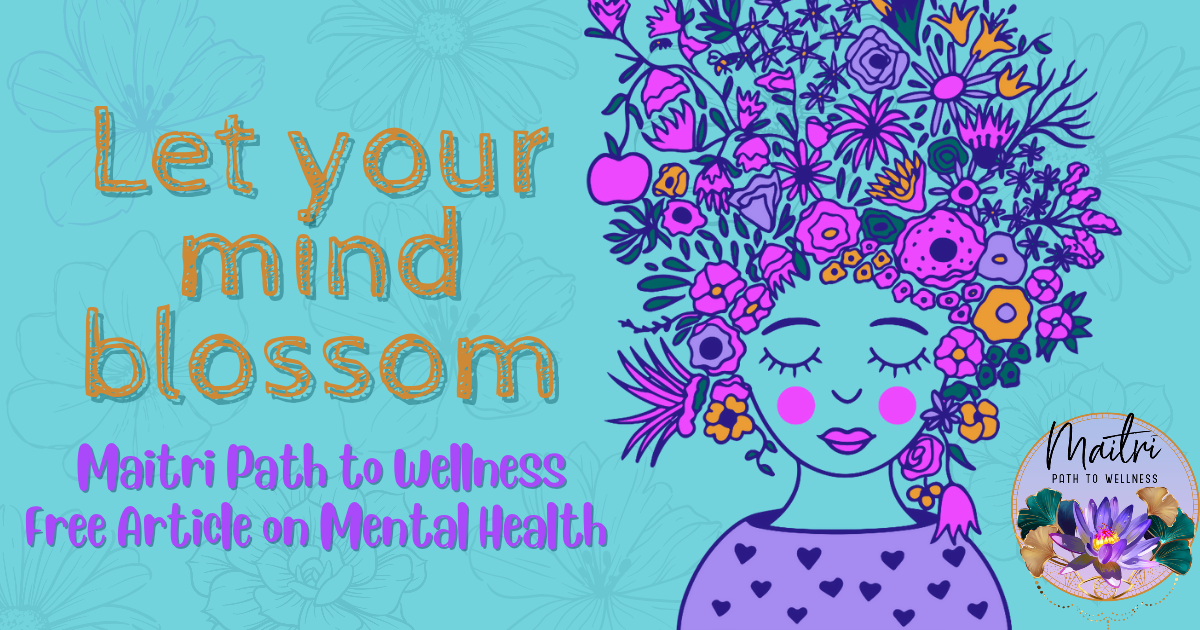Regain control and live anxiety-free with these proven strategies.
Introduction
Living with anxiety can be debilitating, robbing you of joy and holding you back from reaching your full potential. The good news is that anxiety is a condition that can be managed and overcome with the right strategies and support. In this article, we will explore ten surefire ways to overcome anxiety and reclaim your life. By implementing these techniques, you can regain control, find peace of mind, and experience a brighter future.
Understanding Anxiety: Causes and Symptoms
Anxiety can be triggered by various factors, including life events, genetics, and brain chemistry. It manifests differently in each individual, but common symptoms include persistent worry, restlessness, racing thoughts, physical tension, and difficulty concentrating. By recognizing the causes and symptoms, you can begin to understand the root of your anxiety and take steps towards overcoming it.
Common triggers
Anxiety can be triggered by stressful situations, traumatic experiences, or even certain phobias. Identifying these triggers is the first step in managing anxiety effectively.
Physical and emotional symptoms
Anxiety affects not only our emotions but also our physical well-being. Common symptoms include rapid heartbeat, shortness of breath, sweating, nausea, irritability, and sleep disturbances. Recognizing these symptoms can help you better understand your anxiety and seek appropriate solutions.
Importance of Addressing Anxiety
Addressing anxiety is crucial for your overall well-being. If left unchecked, anxiety can have detrimental effects on your mental and physical health, relationships, and daily life. By taking proactive steps to manage anxiety, you can regain control and prevent it from taking over your life.
Impact on mental and physical health
Anxiety can contribute to the development of other mental health disorders such as depression and substance abuse. It can also lead to physical health issues like high blood pressure, weakened immune system, and digestive problems. Recognizing the impact of anxiety on your health is essential in motivating yourself to take action.
Effects on daily life and relationships
Anxiety can interfere with your ability to perform daily tasks, maintain relationships, and pursue your goals. It may lead to avoidance behaviors, social isolation, and a reduced quality of life. By addressing your anxiety, you can regain the freedom to live life on your own terms.
Therapy Options for Anxiety
Various therapeutic approaches have proven effective in managing and overcoming anxiety. Working with a mental health professional can provide you with the tools and support needed to navigate through anxiety.
Cognitive-Behavioral Therapy (CBT)
CBT is a widely used therapy for anxiety. It focuses on identifying and challenging negative thought patterns and replacing them with more realistic and positive ones. By changing your thoughts and behaviors, you can break free from anxiety’s grip.
Exposure Therapy
Exposure therapy involves gradually exposing yourself to anxiety-inducing situations or triggers in a controlled and supportive environment. Through repeated exposure, you learn to reduce anxiety and develop coping mechanisms.
Mindfulness-Based Stress Reduction (MBSR)
MBSR combines mindfulness meditation, yoga, and awareness of the present moment to reduce stress and promote well-being. It helps you develop a non-judgmental attitude towards your anxiety and cultivates inner peace.
Medication and other treatment approaches
In some cases, medication may be prescribed to manage anxiety symptoms. It’s important to work with a qualified healthcare professional to determine if medication is the right choice for you. Other treatment approaches, such as alternative therapies and self-help techniques, can also complement your anxiety management plan.
Lifestyle Changes to Reduce Anxiety
In addition to therapy, making certain lifestyle changes can significantly reduce anxiety symptoms and promote overall well-being. Incorporating healthy habits into your daily routine can have a profound impact on your anxiety levels.
Exercise and its role in managing anxiety
Regular physical exercise has been shown to reduce anxiety and improve mood. Engaging in activities such as walking, jogging, yoga, or dancing releases endorphins, which are natural mood boosters. Find an exercise routine that suits your preferences and make it a regular part of your life.
Healthy sleep habits and relaxation techniques
Adequate sleep is crucial for maintaining mental and emotional balance. Establishing a consistent sleep schedule, creating a relaxing bedtime routine, and practicing relaxation techniques like deep breathing or meditation can help you achieve restful sleep and reduce anxiety.
Dietary adjustments for anxiety relief
Certain foods and beverages can exacerbate anxiety symptoms, while others can promote calmness and well-being. Avoid or limit stimulants like caffeine and alcohol, and opt for a balanced diet rich in fruits, vegetables, whole grains, and lean proteins. Consider incorporating anxiety-reducing foods like fatty fish, nuts, seeds, and herbal teas into your diet.
Building Resilience and Coping Mechanisms
Building resilience and developing effective coping mechanisms are crucial for managing anxiety in the long term. These strategies empower you to face challenges head-on and bounce back from setbacks.
Stress management techniques
Learning stress management techniques, such as deep breathing exercises, mindfulness, and journaling, can help you navigate stressful situations with greater ease. These tools enable you to stay grounded and centered, even in the face of anxiety-provoking circumstances.
Developing a support system
Having a strong support system can provide a sense of belonging, understanding, and encouragement. Surround yourself with positive, supportive individuals who can offer a listening ear and guidance during difficult times.
Self-care practices and stress reduction activities
Engaging in self-care practices is vital for maintaining balance and reducing anxiety. Find activities that bring you joy and relaxation, such as hobbies, spending time in nature, practicing self-compassion, or engaging in creative outlets. Make self-care a priority in your life.
Cognitive Strategies to Overcome Anxiety
Cognitive strategies involve identifying and challenging negative thought patterns associated with anxiety. By changing your mindset, you can gain control over anxious thoughts and emotions.
Identifying and challenging negative thought patterns
Pay attention to negative thoughts and beliefs that contribute to your anxiety. Challenge their validity and replace them with more realistic and positive alternatives. Practice self-compassion and remind yourself that you are capable of overcoming anxiety.
Reframing techniques
Reframing involves shifting your perspective on challenging situations. Instead of catastrophizing or assuming the worst-case scenario, look for alternative viewpoints and focus on finding solutions. Reframing helps you adopt a more optimistic outlook and reduces anxiety.
Building a positive mindset
Cultivating a positive mindset involves consciously directing your attention towards positive aspects of life. Practice gratitude, affirmations, and visualization techniques to rewire your brain for positivity. A positive mindset acts as a protective shield against anxiety.
Embracing Mindfulness and Meditation
Mindfulness and meditation practices can be powerful tools in managing anxiety. They promote present-moment awareness, acceptance, and a non-judgmental attitude towards your thoughts and emotions.
Understanding mindfulness and its benefits
Mindfulness is the practice of intentionally focusing your attention on the present moment without judgment. It helps you become more aware of your thoughts and emotions, allowing you to respond to anxiety with clarity and compassion.
Techniques for practicing mindfulness
Simple mindfulness techniques include deep breathing exercises, body scans, and mindful walking. Engaging in regular meditation sessions, either guided or self-directed, can deepen your mindfulness practice and provide profound relaxation.
Integrating meditation into daily life
Bringing mindfulness into your daily life involves incorporating moments of mindful awareness throughout your day. Whether it’s savoring your morning coffee, fully engaging in conversations, or practicing mindful eating, these moments cultivate a sense of calm and presence.
Overcoming Anxiety in Social and Professional Settings
Anxiety can be particularly challenging in social and professional settings. However, with the right strategies, you can navigate these situations with confidence and ease.
Managing social anxiety
Social anxiety can make social interactions feel overwhelming. Gradual exposure, seeking support from a therapist or support group, and practicing relaxation techniques can help you manage social anxiety and build stronger connections.
Tips for handling anxiety at work or school
Anxiety in the workplace or academic settings can hinder performance and well-being. Implementing strategies like time management, setting realistic goals, seeking support from colleagues or mentors, and practicing self-care can alleviate anxiety and enhance productivity.
Effective communication strategies
Anxiety can impact communication, making it difficult to express yourself clearly or assert your needs. Practice active listening, assertiveness techniques, and clear communication to enhance your interpersonal skills and reduce anxiety in social and professional interactions.
Moving Forward: Long-Term Strategies for Anxiety Management
Managing anxiety is an ongoing process. To ensure long-term success, it’s important to develop strategies that support your well-being and provide continuous growth.
Maintaining progress and preventing relapse
Consistency is key in managing anxiety. Continuously practice the strategies that have worked for you, even when anxiety is less intense. Regular self-reflection, mindfulness, and ongoing therapy or support can help you maintain progress and prevent relapse.
Seeking ongoing support and professional guidance
Anxiety management is not a journey you have to face alone. Seeking ongoing support from therapists, support groups, or online communities can provide valuable insights and accountability. A mental health professional can guide you through challenges and provide tailored strategies for your unique situation.
Embracing a holistic approach to wellness
Anxiety is influenced by various aspects of your life, including physical health, relationships, and self-care. Embracing a holistic approach to wellness means prioritizing self-care, maintaining healthy habits, nurturing relationships, and finding balance in all areas of your life.
Conclusion
Anxiety may feel overwhelming, but it doesn’t have to define you. By implementing the ten surefire ways discussed in this article, you can take control of your anxiety and reclaim your life. Remember, everyone’s journey is unique, and it’s essential to find the strategies that resonate with you. With dedication, support, and a positive mindset, you can overcome anxiety and create a future filled with peace, joy, and fulfillment.
FAQs
Can anxiety be completely cured?
While anxiety can be effectively managed and its impact significantly reduced, complete “cure” may not be attainable for everyone. However, with the right strategies, support, and self-care, individuals can lead fulfilling lives despite anxiety.
Are medications necessary to overcome anxiety?
Medication can be beneficial for some individuals in managing anxiety symptoms. However, it’s important to work closely with a healthcare professional to determine if medication is suitable for your specific situation. Therapy and lifestyle changes can also be effective without medication.
Can exercise alone help with anxiety?
Exercise is known to release endorphins, which improve mood and reduce anxiety. However, for comprehensive anxiety management, it’s recommended to combine exercise with other strategies such as therapy, relaxation techniques, and lifestyle adjustments.
How long does it take to see improvement in anxiety symptoms?
The timeline for improvement in anxiety symptoms varies for each individual. Some may experience relief sooner, while others may require more time. Consistency in implementing the strategies and seeking support can contribute to steady progress.
Can anxiety come back after successful management?
Anxiety can resurface during periods of stress or major life changes. It’s important to remain vigilant and continue practicing self-care, stress management, and utilizing the strategies that have worked for you to prevent anxiety from returning.
Can I manage anxiety without professional help?
While self-help strategies and lifestyle changes can be beneficial, professional help can provide guidance, support, and evidence-based interventions tailored to your specific needs. Consulting with a mental health professional can significantly enhance your anxiety management journey.
This article has provided you with valuable insights and practical strategies to overcome anxiety and reclaim your life. Remember, you are not alone, and with the right tools and support, you can overcome anxiety’s grip and embrace a future filled with peace and well-being.

Hey there friend! I’m Brenden Fasken, a passionate advocate for mental health and the transformative power of recovery. As a proud recovering addict, I’ve traveled the winding roads of addiction and emerged on the other side, ready to share my experiences and insights with you. I enjoy sharing blogs that delve into the complexities of mental health, substance use disorders, and the journey of personal growth. I aim to break down barriers, spark conversations, and offer a beacon of hope to those who may be struggling. So, join me as we embark on this empowering journey together, exploring the depths of our minds, celebrating resilience, and embracing the transformative potential within each of us.
Through my own recovery journey, I’ve learned that life’s challenges can be our greatest teachers. With each hurdle, I’ve gained insights and perspectives that have shaped my understanding of mental health and addiction. From the darkest moments to the brightest triumphs, I share personal anecdotes, reflections, and practical advice that I’ve gathered along the way. Together, we’ll navigate the labyrinth of emotions, challenge societal stigmas, and uncover the power of self-care and self-discovery. So, buckle up and get ready for an engaging and insightful ride as we explore the nuances of mental health and embark on a shared quest for personal growth and well-being.

